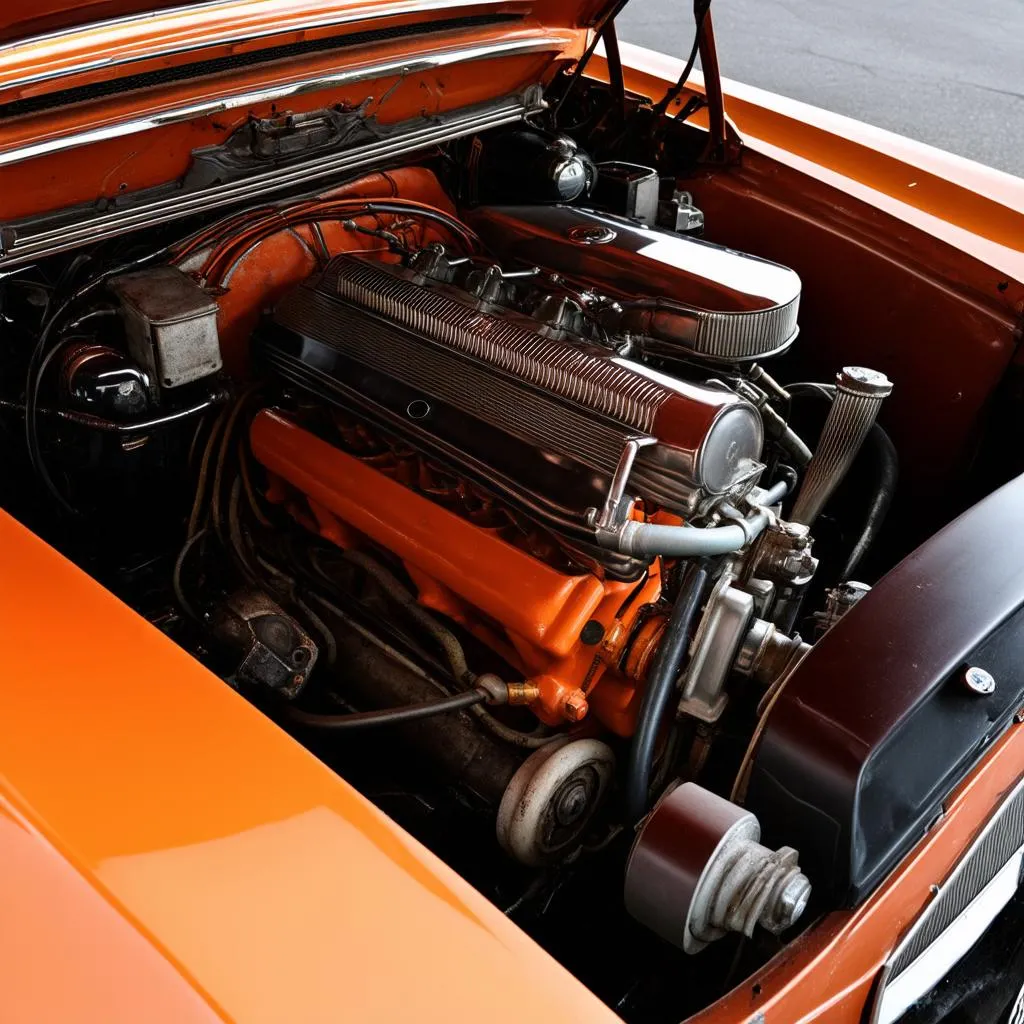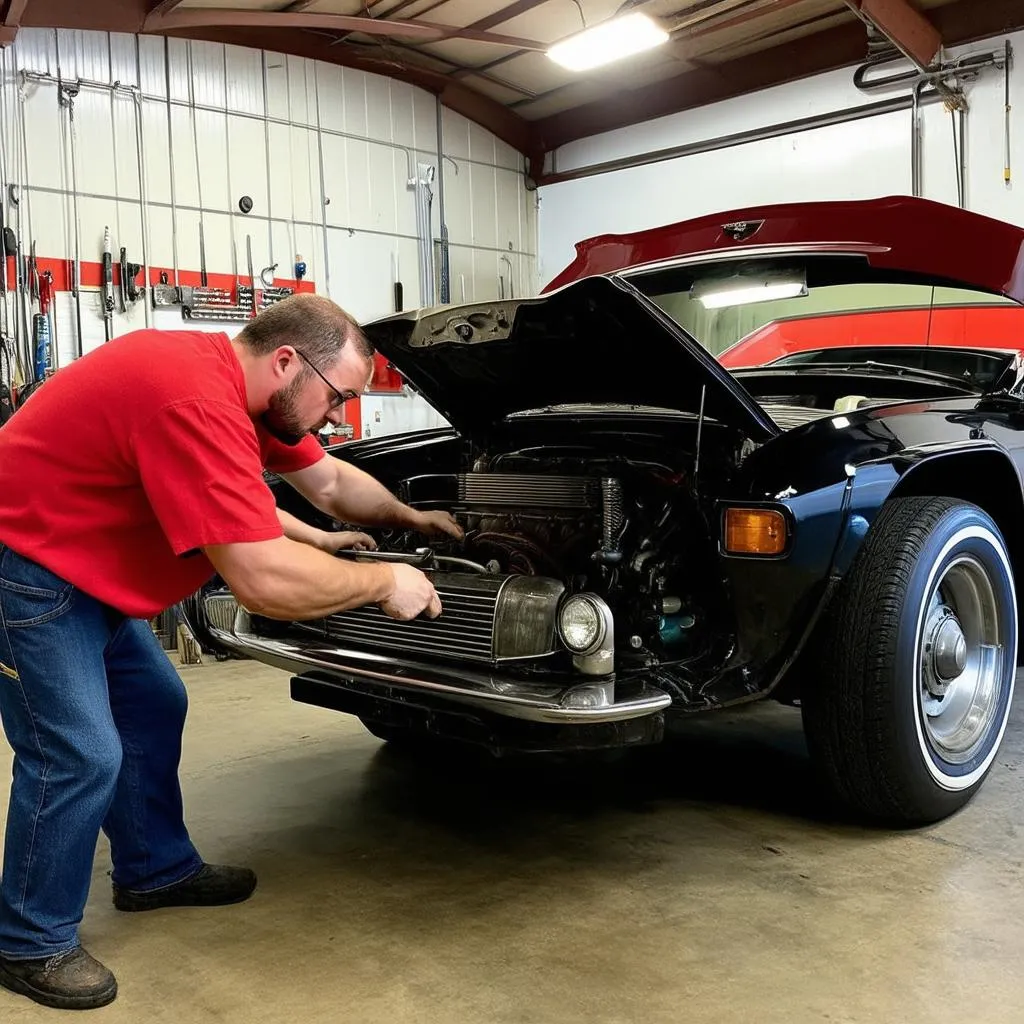Ever found yourself staring at the mysterious black box under your dashboard, wondering how mechanics used to decipher your car’s problems before the age of sleek OBD2 scanners? You’re not alone! The world of early car diagnostics can feel like a secret society, especially when you’re trying to figure out if there’s even such a thing as an “OBD1 scanner.” Buckle up, because we’re about to demystify this intriguing corner of automotive history.
What Does “OBD1 Scanner” Even Mean?
To understand the answer, let’s rewind a bit. Imagine a time before smartphones, when a mechanic in a dusty garage in Detroit would rely on experience, intuition, and a handful of specialized tools to diagnose car troubles. That’s essentially the world of OBD1.
The term “OBD1” itself is a bit of a misnomer. While “OBD” stands for On-Board Diagnostics, the standardized system we know as OBD2 didn’t come about until the mid-1990s, driven by environmental regulations. Before that, car manufacturers had their own proprietary systems, each with unique connectors, protocols, and diagnostic procedures.
Think of it like trying to understand different languages. Your sleek, modern OBD2 scanner is like a universal translator, while the tools used for pre-OBD2 cars were more like specialized dictionaries for each “language” (or car make).
So, No Universal OBD1 Scanner?
You got it! There’s no single, magical “OBD1 scanner” that can unlock the secrets of every car made before the mid-90s. However, this doesn’t mean those cars are beyond the reach of diagnostics.
Navigating the World of Pre-OBD2 Diagnostics
-
Manufacturer-Specific Tools: Just like a Mercedes-Benz mechanic in Berlin might need a specialized tool for a particular model, mechanics in the pre-OBD2 era relied on tools designed for specific car makes and even specific systems within those makes. For instance, you might need a separate tool to diagnose engine issues versus transmission problems.
-
Early Code Readers: Some cars from the late 1980s and early 1990s did have rudimentary onboard diagnostic systems. These often used simple blink codes (like Morse code!) flashed on the dashboard or under-hood LEDs to signal specific problems.
-
The Power of Experience: Before computerized diagnostics became widespread, mechanics relied heavily on their knowledge of car mechanics, their senses (sight, smell, sound), and tried-and-true diagnostic procedures. A skilled mechanic could often pinpoint a problem by carefully listening to the engine, feeling for vibrations, or even smelling the exhaust.
Why Does This Matter Today?
You might wonder why this matters if you’re not driving a classic car. Well, understanding the evolution of car diagnostics helps you appreciate the power and convenience of modern OBD2 scanners. It also highlights the importance of finding a mechanic who specializes in your car’s make and model, especially if you’re driving a vintage beauty.
 Classic Car Engine
Classic Car Engine
FAQs: Decoding Your Pre-OBD2 Car
Q: My 1994 Ford Ranger has a check engine light. Can I use a regular OBD2 scanner?
A: Possibly! 1994 was a transition year. Some 1994 models have the OBD2 connector but still use some OBD1 protocols. You might need a specialized scanner or adapter.
Q: I found a device claiming to be an “OBD1 to OBD2” adapter. Will it work?
A: These adapters mainly work by physically connecting the different ports, but they won’t magically translate the different protocols. They might be useful for some limited diagnostics, but don’t expect miracles.
Q: My classic car doesn’t have any diagnostic ports. What do I do?
A: Seek out a mechanic specializing in classic cars. They’ll have the knowledge and tools to diagnose your vehicle.
 Classic Car Restoration
Classic Car Restoration
Need Help Deciphering Your Car’s Language?
Whether you’re grappling with pre-OBD2 mysteries or have questions about modern car diagnostics, our team at Tech Car USA is here to help! We’re passionate about all things automotive and can guide you to the right tools and resources. Contact us on WhatsApp at +84767531508, and let our experts decode your car’s language today!
Looking for more insights into car tech? Check out these articles: